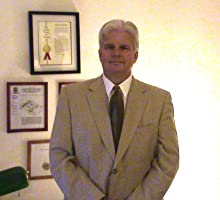Dub McClish
How can this be? Doesn’t religious equal saved? It makes no difference what you believe as long as you’re sincere is a very old slogan that implies as much. (The updated version of this platitude is, “It makes no difference whether you believe….”).
What about it? Can a believer be devoutly religious and still be lost? Are you willing to let the Bible answer this question (it does so very definitively)?
Consider the following:
• Cain, the first-born of all mankind, was religious, as indicated by the fact that he offered a sacrifice unto God. However, his apparent sincerity did not excuse his substitution of produce for blood (Gen. 4:3–5; Heb. 11:4). Religious, but lost.
• Jeroboam, first king of the northern Israelite kingdom, was so zealous in religion that he built new altars and objects of worship, appointed a new priesthood, and declared new holy feast days (1 Kin. 12:32). His epitaph by inspired writers reads: “he made Israel to sin” (14:16; et al.). Religious, but lost.
• The Pharisees of the first century were among the most zealous religious folk of their day among God’s people. Yet Jesus repeatedly rebuked, exposed, and condemned them for their many hypocrisies, calling them “sons of hell” (Mat. 23:15). Religious, but lost.
• Saul of Tarsus was as sincerely zealous in his convictions as a person can be. He was a “Hebrew of Hebrews,” a Pharisee, who concerning the law, was blameless (Phi. 3:5–6). His zeal for God’s Law through Moses led him to believe he “ought to do many things contrary” to the Son of God (Acts 26:9). He proved his sincerity by leading a wave of terror against Christians. But when Saul asked Jesus what he must do, the Lord didn’t tell him, “Your sincerity and zeal are sufficient; go your way.” Rather He told Saul to go into Damascus where he would be told what he must do (22:8–10), resulting in baptism, in which act his sins were “washed away” (i.e., forgiven) by Jesus’ blood (v. 16; Rev. 1:5). Religious, but lost.
• The Ethiopian nobleman was so sincere in his religious practice that he rode 750 miles in a primitive vehicle (a chariot) to worship God in Jerusalem, and he read the Bible as he rode toward home (Acts 8:27–28). Yet the fact that an angel of God and the Holy Spirit brought Philip into contact with this man (vv. 26,29) so he could hear the Gospel (v.35), conclusively indicates that he was lost. Neither this man’s zeal or sincerity were enough to save him. Religious, but lost.
We thus learn: It is not enough to be religious or even to be sincere and zealous in religion.We must be sincere and zealous in true religion, as defined by the New Testament.
[Note: I wrote this article for and it appeared in the Denton Record-Chronicle, Denton, TX, June 21, 2013.] Attribution: From TheScripturecache.com, owned and administered by Dub McClish.

